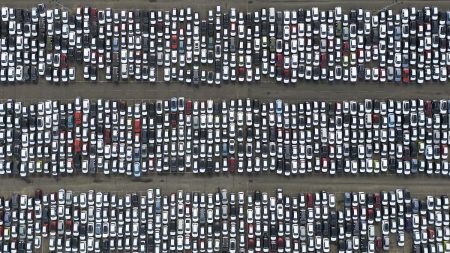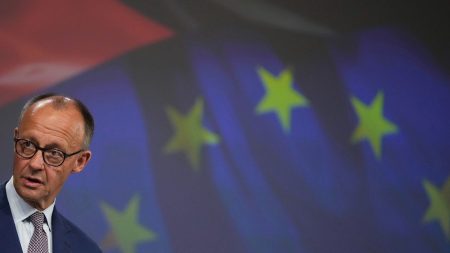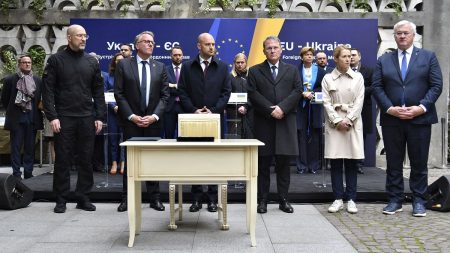The European automotive industry is facing a critical juncture as stringent CO2 emission standards, set to take full effect in 2025, loom large. These regulations, agreed upon in 2019, aim to drastically reduce the average emissions of new cars and vans, pushing the industry towards electrification. However, the slow uptake of electric vehicles has left car manufacturers struggling to meet these targets, raising concerns about potential billions of euros in fines and the overall competitiveness of the European car market. The center-right European People’s Party (EPP), the largest group in the European Parliament, is leading the charge for regulatory adjustments, arguing that the current framework threatens the survival of the industry and millions of jobs.
The EPP’s central argument revolves around the slower-than-anticipated growth of the electric vehicle market. They contend that the 2025 targets are unrealistic given the current consumer demand for electric vehicles and propose a series of “temporary relief measures.” These include allowing manufacturers to “bank” sales, potentially offsetting future emissions against current overages; calculating compliance based on a three-year average rather than a single year; and basing penalties on production figures rather than sales, incentivizing the production of smaller, more affordable electric cars. These measures are designed to provide the industry with breathing room while the electric vehicle market matures.
Beyond the 2025 targets, the EPP is also challenging the 2035 ban on new petrol and diesel car sales, a cornerstone of the EU’s Green Deal. They advocate for a “technology-neutral” approach that recognizes the potential role of alternative fuels, including e-fuels, biofuels, and synthetic fuels, in reducing CO2 emissions. The EPP proposes incorporating a “carbon correction factor” to compare the lifecycle emissions of these fuels with those of fossil fuels. This position has sparked controversy, with critics arguing that e-fuels are inherently less efficient than direct electrification and that other alternative fuels share many of the pollution problems of traditional fossil fuels.
This push for regulatory easing has ignited a debate about the future direction of the European automotive sector. While the EPP emphasizes the need to protect jobs and maintain the industry’s competitiveness, opponents argue that relaxing the regulations would undermine the EU’s climate goals and further delay the necessary transition to electric mobility. Volvo Cars, for example, has publicly questioned the logic of investing in alternative fuels when electrification is already a viable and efficient solution. They emphasize the urgency of staying competitive in the global market, dominated by accelerating electrification efforts in the US and China, and argue that delays will only widen the gap.
The European Commission faces the challenging task of balancing these competing interests. While acknowledging the industry’s concerns, the Commission has so far maintained that the existing regulations are necessary to drive the transition to a sustainable transport system. The upcoming Clean Industrial Package and the Strategic Dialogue on the Future of the Car Industry, personally overseen by Commission President Ursula von der Leyen, will be crucial in shaping the future regulatory landscape. The outcome of these initiatives will determine whether the EU maintains its ambitious climate targets or adjusts its course in response to industry pressure.
The central question remains: can the European automotive industry adapt quickly enough to meet the stringent emission targets, or will it require a regulatory reprieve to avoid significant financial penalties and potential job losses? The debate underscores the complex interplay between economic interests, environmental concerns, and technological innovation. The decisions made in the coming months will have far-reaching implications for the future of the European automotive industry and its role in the global transition to sustainable transportation. The EPP’s push for regulatory easing highlights the tension between supporting a traditional industry and pursuing ambitious climate goals. The Commission’s response will be a defining moment for the future of mobility in Europe.














